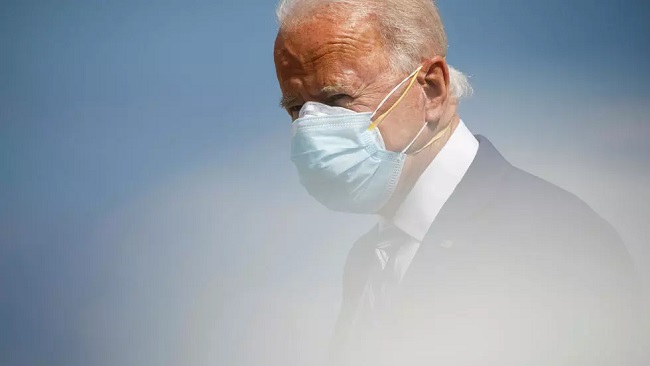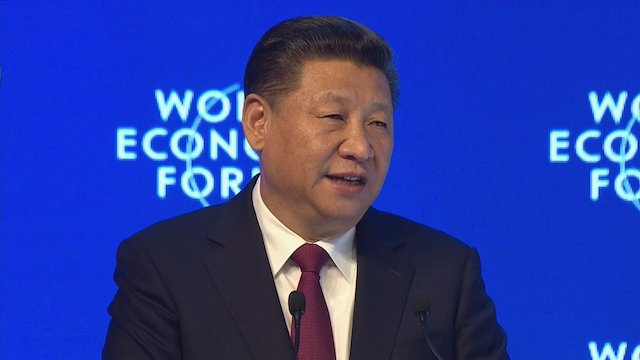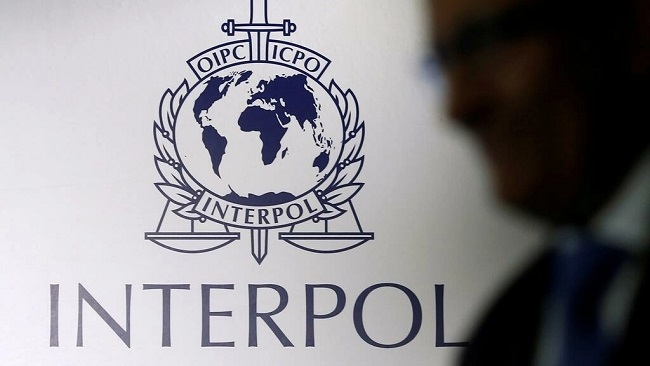30, January 2022
N. Korea conducts largest missile test 0
North Korea conducted its largest missile test since 2017 on Sunday, sending a suspected intermediate-range ballistic missile soaring into space, seen as taking the nuclear-armed country a step closer to resuming long-range testing.
South Korea’s Joint Chiefs of Staff reported that a projectile believed to be a single ballistic missile was launched about 7:52 a.m. (2252 GMT) from North Korea’s Jagang Province toward the ocean off its east coast.
South Korea’s National Security Council (NSC), which convened a rare emergency meeting presided over by President Moon Jae-in, said the test appeared to involve an intermediate-range ballistic missile (IRBM), which North Korea has not tested since 2017.
The launch takes North Korea a step closer to fully scrapping a self-imposed moratorium on testing its longest-range intercontinental ballistic missiles (ICBMs), Moon said.
He noted that this month’s flurry of missile tests was reminiscent of the heightened tensions in 2017, when North Korea conducted multiple nuclear tests and launched its largest missiles, including some that flew over Japan.
North Korean leader Kim Jong Un has said he is no longer bound by that moratorium, which included a stop to nuclear weapons tests and was announced in 2018 amid a flurry of diplomacy and summits with then-U.S. President Donald Trump.
North Korea’s rulers suggested this month they could restart those testing activities because the United States and its allies had shown no sign of dropping their “hostile policies.”
“The United States condemns these actions and calls on (North Korea) to refrain from further destabilizing acts,” the U.S. military’s Indo-Pacific Command said in a statement after Sunday’s launch.
A U.S. State Department spokesperson said the launch demonstrates the threat posed by North Korea’s unlawful weapons of mass destruction and ballistic missile programmes, and called on Pyongyang to engage in “sustained and substantive” dialogue.
Bigger missiles
It is unclear if IRBMs were included in Kim’s moratorium, but those, too, have not been tested since 2017.
South Korea’s JCS and Japanese Chief Cabinet Secretary Hirokazu Matsuno separately said the missile is estimated to have reached an altitude of 2,000km and flown for 30 minutes to a distance of 800km. IRBMs typically have ranges of 600 to 3,500 miles, while ICBMs have ranges exceeding 3,500 miles.
Missile experts said the data could indicate a test of an IRBM such as the Hwasong-12, which was last tested in 2017, or a new type.
“Regardless of whether it’s a IRBM or ICBM, this is a strategic missile of some sort and clearly not the same as the prior tests in the January 2022 test series to date,” George William Herbert, an adjunct professor at the Center for Nonproliferation Studies and a missile consultant, said on Twitter.
The launch could make January the busiest ever for North Korea’s missile programme, which analysts say is expanding and developing new capabilities despite strict sanctions and United Nations Security Council resolutions that ban the country’s ballistic missile tests.
Its latest launches included a test of two short-range ballistic missiles and their warheads on Thursday, and an updated long-range cruise missile system tested on Tuesday.
‘Ramping up tests’
The test comes less than a week before the opening of the Winter Olympics in Beijing, which is North Korea’s main political and economic partner. Pyongyang has said it would be skipping the Games because of the COVID-19 pandemic and “hostile forces.”
“Kim seems to be ramping up tests in bid to pressure both Washington and Beijing over sanctions just ahead of the Olympics,” said Uk Yang, research fellow at Center for Foreign Policy and National Security.
The tests would also appear to be the final nail in the coffin for Moon’s last-ditch push for a peace deal with North Korea before he leaves office in May, Uk added.
“It’s clear that North Korea is saying inter-Korean relations will need to start from scratch,” he said.
In an address ahead of the New Year, Kim Jong Un called for bolstering the military with cutting-edge technology at a time when talks with South Korea and the United States have stalled.
Since then, North Korea has tested a dizzying array of weapon types, launch locations, and increasing sophistication as denuclearisation talks remain stalled.
Jagang Province was the site of two launches this month of what North Korea said was a “hypersonic missile,” which could reach high speeds while flying and maneuvering at relatively low altitudes, but the ranges reported on Sunday were higher and farther than those earlier tests.
“The ballistic missile launch and the ones before it are a threat to our country, the region and the international community,” Matsuno said. “This series of launches violate U.N. resolutions and we strongly protest this action by North Korea.”
South Korea’s NSC condemned the launch as a violation of the resolutions and a challenge to international peace efforts, using stronger language than previous tests, when it typically expressed “strong regret.”
The tests appear aimed at modernizing North Korea’s military, bolstering national pride ahead of several major North Korean holidays, and sending a message of strength as the country grapples with economic crises caused by sanctions and COVID-19 lockdowns, said Leif-Eric Easley, a professor of international studies at Ewha University in Seoul.
“The Kim regime hears external discussions of its domestic weaknesses and sees South Korea’s growing strength,” he said.
“So it wants to remind Washington and Seoul that trying to topple it would be too costly.”
Kim visited a munitions factory last week, where he called for “an all-out drive” to produce “powerful cutting-edge arms,” and its workers touted his devotion to “smashing … the challenges of the U.S. imperialists and their vassal forces” seeking to violate their right to self-defence.
Source: REUTERS


























1, February 2022
Canada: Prime Minister Trudeau hits out at anti-vaccine ‘Freedom Convoy’ protesters 0
Canada’s Prime Minister Justin Trudeau has slammed protests that took place in the capital Ottawa to demand an end to COVID-19 vaccine mandates.
Supporters of the so-called “Freedom Convoy” rallied in Ottawa on Monday for the third consecutive day to protest against a vaccine requirement for cross-border truckers.
The protests have been largely peaceful but investigations have been opened into some incidents, including a video showing a woman dancing on the Tomb of the Unknown Soldier at the National War Memorial.
Some participants in the protest likened the COVID-19 restrictions to Jews under Nazi persecution, using Nazi symbols on protest signs.
The incidents drew condemnation from Trudeau, who refused to meet the protesters, describing them as “an insult to memory and truth”.
“Freedom of expression, assembly and association are cornerstones of democracy, but Nazi symbolism, racist imagery and desecration of war memorials are not.”
“This is not the story of our pandemic, our country, our people,” the premiere said, adding that his focus was on “standing with Canadians and getting through this pandemic.”
Candice Bergen, deputy leader of the Conservative Party, said the demonstrators represented millions who “have had enough of lockdowns and broken promises”.
“They deserve to be heard and they deserve respect,” she said in a tweet.
The supporters of the “Freedom Convoy” see the coronavirus health measures as government overreach of COVID-19 restrictions, demanding an end to all vaccine mandates nationwide.
Source: Presstv